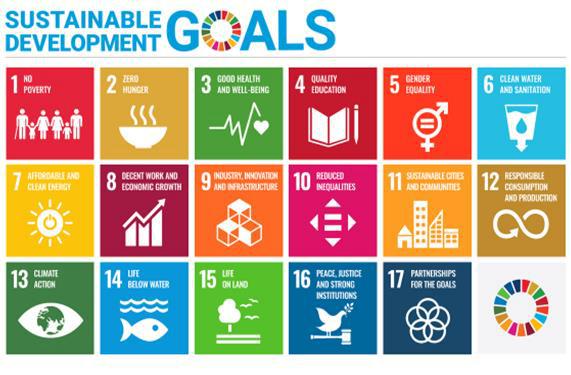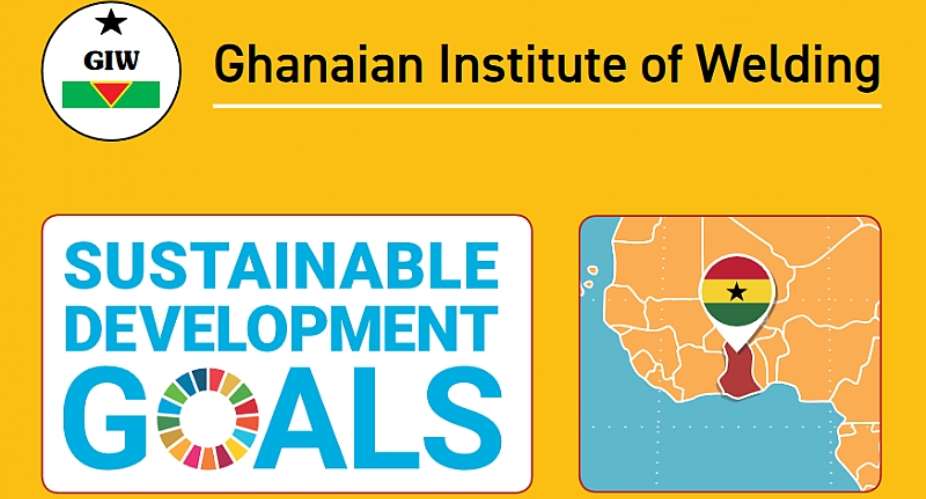Introduction by Dr Fred Kyei Asamoah, Director General, CTVET.
Being a staunch member of the United Nations (UN), the Ghanaian government embraces the UN 2030 Agenda to continuously improve, both locally and globally, the 17 UN Sustainable Development Goals (SDGs) agreed to by world leaders in 2015.
Targets 4.3 states as follows: by 2030, ensure equal access for all women and men to affordable quality technical, vocational and tertiary education, including university whilst 4.4 states: substantially increase the number of youth and adults who have relevant skills, including technical and vocational skills, for employment, decent jobs and entrepreneurship
On this premise, the Commission for Technical and Vocational Education and Training (CTVET) is committed to its mandate to regulate, promote and administer technical and vocational education and training for transformation and innovation for sustainable development in Ghana and stands in support of Ghana’s National Welding Capability drive to achieving positive outcomes in each SDG.
The Ghanaian Institute of Welding (GIW) recently took up the challenge to show how the institute and the Ghanaian welding industry were enhancing the country’s national welding capability as well as contributing to Ghana progressing the 17 UN SDGs. This report co-authored by Chris Smallbone, International Institute of Welding (IIW) Fellow, and Dr Emmanuel Afrane Gyasi, President, GIW, gives Ghanaian companies in the welding industry the opportunity to assess themselves against the SDGs and their commitments to sustainability. The report also gives examples of how welding organizations like GIW and the entire welding industry have positively influenced the SDGs, and improved the quality of life of people and the environment in Ghana.
A key objective of this report therefore is to act as a catalyst to create a quantum leap in mutually beneficial strategies, actions and number of projects within each SDG which the Ghanaian welding industry organisations and networks could do in cooperation and collaboration with the Ghanaian government, industry and aid agencies to achieve the UN SDGs by 2030.
Ghana’s National Welding Capability Project
GIW, together with the welding industry and networks, has worked for many years to improve the nation’s National Welding Capability (NWC).
https://www.scielo.br/j/si/a/tDWHcwCpMB3tFYY4xTXWZWt/?lang=en
Improving a country’s National Welding Capability can make a significant contribution to, and have a very positive effect on, many national and international programmes including the SDGs. Such initiatives include, amongst others, education, training, qualification and certification of personnel to both national and international standards, assisting companies to meet exacting standards of customers, R&D and technology transfer. GIW also assists in promoting education and training to increase self-sufficiency and diversity in skilled personnel in Ghana and other regional countries.
GIW and the welding industry’s excellent national, regional and international networks of individuals and organisations, including the International Institute of Welding (IIW) and its members, universities, colleges, research organisations and companies involved in welding enable them to cooperate, collaborate and leverage many of the activities, including technologies, required to progress the NWC and various SDGs.
What are the UN Sustainable Development Goals (SDGs)
The United Nations (UN) has 193 countries as members and with the challenges of improving the quality of life in countries, in 2015, world leaders agreed for the UN to implement 17 Sustainable Development Goals (SDGs) aimed at low and middle income countries. Each UN country is supposed to measure its progress on an annual basis against the targets and indicators set against each SDG to achieve the UN 2030 Agenda. https://en.wikipedia.org/wiki/Sustainable_Development_Goals
In 2019, Ghana presented its first Voluntary National Review (VNR) on the implementation of the SDGs to the United Nations High-Level Political Forum in New York. It highlighted three pillars of sustainable development, Economic, Social and Environmental, to which a fourth pillar, Institutional, has been added for the Ghanaian context.
The report describes the impact of effective partnerships and shares the experiences in sustainable approaches and cooperation between and among civil society, private sector and development agencies. It also illustrates how strategic projects contribute to the achievement of specific priorities of government within the context of the SDGs.
The coherent integration of the SDGs into Ghana’s development agenda is also reflected in the country’s Coordinated Programme of Economic and Social Development Policies (CPESDP), 2017-2024. Many of the Ghanaian government’s flagship programmes and key government departments are at the core of the SDGs and other development frameworks such as the African Union’s Agenda 2063 and the Millennium Development Goals (MDGs).
In 2021, Ghana currently ranks 114 out of 165 countries reporting
https://dashboards.sdgindex.org/downloads. Progress on the SDGs was mixed with challenges remaining in the achievement of many of the SDGs. The COVID-19 pandemic has had a negative effect in this regard.

The Way Forward
It is hoped that this report will stimulate ideas amongst the Ghanaian welding community for feedback to Emmanuel Gyasi, GIW President, [email protected]. The link
https://asr.ro/documents/C.Smallbone2021.pdf?_t=1639211760 contains many examples and references to various initiatives across welding-related fields, which have been, or could be introduced for all 17 UN SDGs.
LINK TO DOWNLOAD THE REPORT https://giwelding.org/
By Chris Smallbone, IIW President 2005-2008, IIW Fellow
Dr Emmanuel Afrane Gyasi, President, GIW
Senior Lecturer, Kumasi Technical University





 "I can now see clearly with my two eyes, thanks to the generosity of Afenyo-Mark...
"I can now see clearly with my two eyes, thanks to the generosity of Afenyo-Mark...
 Election 2024: Power outages will affect NPP – Political scientist
Election 2024: Power outages will affect NPP – Political scientist
 NPP is 'a laughing stock' for luring 'poster-stickers', 'noisemaking babies' wit...
NPP is 'a laughing stock' for luring 'poster-stickers', 'noisemaking babies' wit...
 Dumsor: Matthew Opoku Prempeh must be removed over power crisis – IES
Dumsor: Matthew Opoku Prempeh must be removed over power crisis – IES
 PAC orders WA East DCE to process requests from their MP
PAC orders WA East DCE to process requests from their MP
 Defectors who ditched Alan’s Movement to rejoin NPP were financially induced – A...
Defectors who ditched Alan’s Movement to rejoin NPP were financially induced – A...
 Dumsor: Akufo-Addo has taken Ghanaians for granted, let’s organise a vigil – Yvo...
Dumsor: Akufo-Addo has taken Ghanaians for granted, let’s organise a vigil – Yvo...
 April 23: Cedi sells at GHS13.66 to $1, GHS13.07 on BoG interbank
April 23: Cedi sells at GHS13.66 to $1, GHS13.07 on BoG interbank
 GRA clarifies tax status of resident individuals earning income abroad
GRA clarifies tax status of resident individuals earning income abroad
 2024 elections: NDC to officially unveil Jane Opoku-Agyemang as running mate tom...
2024 elections: NDC to officially unveil Jane Opoku-Agyemang as running mate tom...
